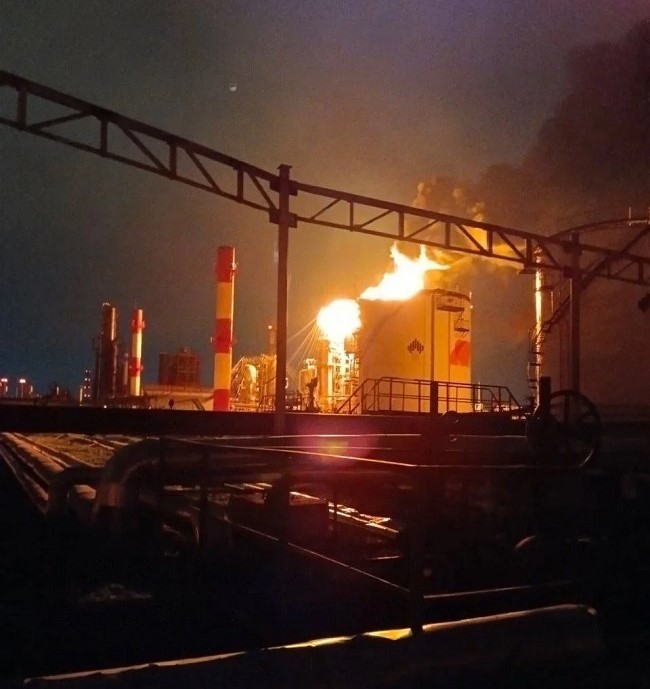
In the last few months, Ukraine has been conducting a campaign of long-range drone attacks against Russia's POL (Petroleum, Oil and Lubricant) infrastructure and the associated architecture of storage and production centres. This campaign probably represents an attempt to counter the growing pressure of the Russian Air Force, which almost unpunished now strikes over the frontline with its UMPK bombing tactics. In this sense, as is often the case with so-called indirect approach strategies, it is not yielding great results. However, it is bringing about others, publicised a few weeks ago through press sources, according to which the US Administration has asked the Ukrainians to stop this campaign because of the effects it would have on the world commodities markets. Although these pressures have never been officially confirmed (indeed, both Ukrainian and US government sources have denied them), it is worth taking a look at how the scenario is evolving in the face of Moscow's official admission that more than a dozen refineries in the Oblasts of the Russian Federation are heavily affected. Diesel prices have unequivocally risen, although for the time being this is perceived more by the Russian consumer than by international markets. The biggest jump was recorded last week, with an immediate increase by 10% following the major damage suffered, almost simultaneously, by no less than two large refineries previously considered almost safe, as they were located some 500 km from the Ukrainian border. This increase comes on top of that of the price of crude oil, which has risen by more than 20% in six months. Some say that if this continues, Russia might even be forced, at least as an emergency measure, to import (especially petrol) from Belarusian reserves. Already last year, Moscow had for some time imposed various export restrictions on both diesel and petrol as a result of shortages on the domestic civilian market, which, due to the prioritisation of these refined fuels for military use, was seeing both the agricultural and domestic transport sectors increasingly suffering. The move had, however, immediately created a rise in international fuel prices, generating illegal foreign trade in (mostly) petrol, which was bought in Russia by various traffickers at prices kept artificially low. At the end of the year, Moscow had therefore resumed exports of refined fuel (mainly to South American or North African countries, although, surprisingly, also to the United Arab Emirates), but, since last March, precisely because of the Ukrainian deep-sea strikes, it has been slowly placing new restrictions: last week's exports of diesel and petrol amounted to 712,000 tonnes, compared to 844,000 tonnes for the same period in 2023. We will see in the coming weeks whether this trend will continue: when combined with the weight of international sanctions and the significant decrease by many of the world's most industrialised nations in imports of refined fuel (as well as crude oil) from Russia, it could indeed produce important long-term consequences on Russia's ability to finance the war (while we reiterate that, like almost all indirect approach strategies, the battlefield effects will continue to be minimal for a long time to come). While most Western countries have stopped importing refined Russian fuel such as gasoline and diesel, the UAE, along with a handful of South American and North African nations, have continued to purchase it either to take advantage of low prices or re-export it. Now, Moscow will have to choose between maximising the flow that fills its 'war chest' or ensuring that its soldiers and civilians can fill their tanks and cars.








